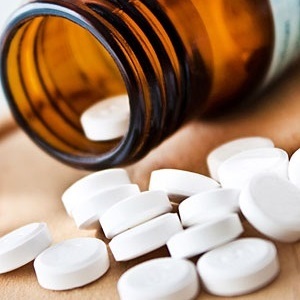
The so-called “Paracetamol Challenge” encourages teens to take excessive amounts of the common painkiller paracetamol (aka acetaminophen) and record it’s effects to distribute through their social media accounts.
The challenge is said to have originated in Scotland where it spread through Facebook and Instagram. It was brought to public attention when The Scotsman newspaper reported a teenager in East Ayrshire, Scotland, was hospitalised after ingesting large amounts of the easily-available painkiller.
Alan Ward, head of schools at East Ayrshire Council, is quoted in The Scotsman, saying "The challenge results in young people daring each other, through Instagram and Facebook, to take excessive amounts of paracetamol and this is a matter of great concern."
"We are urging parents to talk to their children about the potential dangers of taking paracetamol and to discourage their children from engaging in any online activity in support of this dangerous craze."
Adding some credibility to the ‘craze’, policing news website Police Hour, as well as @CoatbridgePolice tweeted/retweeted “Warning keep your kids away from #paracetamolchallenge it will result in liver & kidney failure…and death“
While there are numerous Twitter posts about the challenge, and British news websites such as The Independent, The Mirror and The Daily Mail have posted versions of the original article, along with sensationalist stories of the dangers of overdosing on paracetamol, the hoax-exposing website Snopes casts doubt over whether this challenge is actually real.
However, parents are urged to remain vigilant and discuss the dangers with their children.
What are the dangers and what is an overdose?
An overdose of paracetamol (known as paracetamol poisoning) is regarded as a medical emergency as it can cause fatal liver and kidney damage, including acute liver failure. It can also lead to hemorrhaging and brain damage.
The symptoms of paracetamol poisoning include jaundice (yellowing of the skin or whites of the eyes; loss of co-ordination; and hypoglycaemia (low blood sugar), which can cause trembling, sweating, and irritability.
Symptoms of liver and kidney failure may not be evident for the first 24 hours.
Within the first 24 hours of an overdose, symptoms of paracetamol overdose include nausea, paleness, increased sweating, tiredness, loss of appetite, vomiting.
Thereafter pain in the upper right side of the abdomen, dark urine, yellowing of the whites of the eyes and urinating less often than normal.
Most people recover completely with adequate treatment, which includes taking activated charcoal, ‘stomach pumping (gastic lavage), taking emetics that cause you to vomit and administering acetylcysteine which acts as an antidote or cimetidine which slows the effects of acetaminophen (paracetamol).
Drugs.com reports that, for most people, it is safe to take 4,000 milligrams (4 grams) in a 24-hour period. Any more than that in the same time period is considered an overdose.
Be aware of Internet challenges
One craze that has caused concern in the UK is the ‘sleeper craze’ where children as young as eight play a game to deliberately make themselves unconscious. Children hold their breath until they pass out, or an accomplice will hold their mouth and nose shut until they black out.
Another that raised concern recently is the cinnamon challenge as well as the ‘CutforZayn’ call.
Read more:
Sleep-deprived teens engage in risky behaviour
Social media pics affect risky behaviour
Depressed moms may cause risky behaviour in teens




 Publications
Publications
 Partners
Partners










